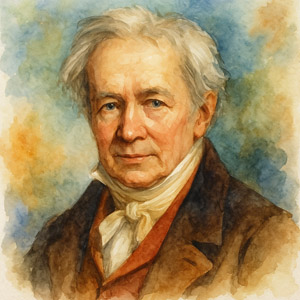 German naturalist and explorer Baron Friedrich Heinrich Alexander von Humboldt (1769-1859) was born on this day, the son of a Prussian army major.
German naturalist and explorer Baron Friedrich Heinrich Alexander von Humboldt (1769-1859) was born on this day, the son of a Prussian army major.
An inspiration of "burning zeal" to Charles Darwin, Humboldt—along with friend and botanist Aimé Bonpland—explored South and Central America extensively.
With a passion for travel, the duo explored the coasts of Venezuela, much of Colombia, Ecuador, and Peru, and the Amazon and Orinoco Rivers. Simón Bolívar called Humboldt "the true discoverer of South America."
Their amazing five-year trek (1799-1804) took them through uncharted territories, with remarkable discoveries that celebrated the ancient Aztec and Inca civilizations.
Humboldt's work, described in dozens of self-published volumes, included the cataloging of over 60,000 plants and laid the foundations for the sciences of physical geography and meteorology.
One of his major discoveries, the productive ecosystem of South America's cold Peruvian Current, was renamed (at his objection) the Humboldt Current and proved the basis for Peru's fishing industry.
Humboldt was a lover of the philosophy of Jean-Jacques Rousseau and a friend of Johann von Goethe and Thomas Jefferson.
About his knowledge and wisdom, Humboldt once said, "First they ignore it, then they laugh at it, then they say they knew it all along."
 Explore with curiosity. Think with vigor. Move with joy. 🌿
Explore with curiosity. Think with vigor. Move with joy. 🌿
